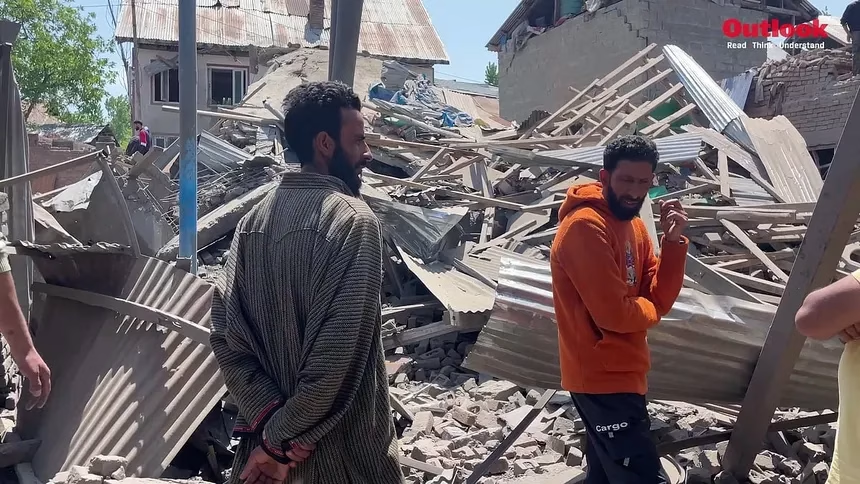Authorities Demolish Homes of Alleged Militants in Intensified Crackdown
Srinagar, April 28, 2025 —
Indian security forces have launched an intensive manhunt across Jammu and Kashmir following a deadly militant attack last week that claimed the lives of several soldiers. The operation has widened in the past 48 hours, with authorities demolishing homes allegedly linked to militants as part of what they describe as a “zero-tolerance” response.
The attack, which took place in the restive Poonch district, saw gunmen ambush an army convoy, killing at least five soldiers and injuring several others. The incident marks one of the deadliest assaults on Indian forces in the region this year and has reignited tensions in the already volatile Himalayan territory.
In response, security forces have cordoned off multiple villages in southern Kashmir, carrying out house-to-house searches. Drones, sniffer dogs, and advanced surveillance equipment have been deployed to track down those responsible.
According to police officials, several suspects have been detained for questioning. “We are pursuing credible leads. Those involved in aiding and executing the attack will not be spared,” said Vijay Kumar, Additional Director General of Police in Kashmir. He added that operations would continue until “every militant involved is neutralized.”
Demolitions Spark Fresh Controversy
In a highly controversial move, authorities have begun demolishing houses they allege were either used to harbor militants or belonged to individuals providing logistical support. Bulldozers rolled into the Pulwama and Shopian districts early Sunday, reducing several structures to rubble under heavy police presence.
Officials defended the demolitions, calling them a necessary deterrent. “If anyone gives shelter to terrorists, their property will be seized or demolished as per the law,” a senior government spokesperson said.
However, human rights activists and some local leaders have criticized the approach, arguing that such actions could further alienate civilians and deepen resentment in the conflict-hit region. “Punitive demolitions without a fair trial violate basic rights,” said Khurram Parvez, a prominent rights advocate based in Srinagar.
Political Reactions
The incident has drawn sharp political reactions from both New Delhi and regional leaders. Indian Prime Minister Narendra Modi, addressing a public rally, condemned the attack and vowed “a befitting response.” Meanwhile, Home Minister Amit Shah reviewed the security situation with top army and intelligence officials over the weekend.
In Kashmir, mainstream political parties, while condemning the militant violence, also expressed concern over the government’s methods. Former Chief Minister Mehbooba Mufti tweeted, “Using bulldozers against civilians is not the answer. This will only push Kashmir’s youth further toward despair.”
Security Measures Tightened
Following the attack, the Indian Army has reinforced security deployments along key highways and sensitive areas across Jammu and Kashmir. Additional checkpoints have been set up, and civilian movement is being strictly monitored.
Reports suggest that the group behind the attack may have received assistance from across the Line of Control (LoC), the de facto border dividing Indian- and Pakistani-administered Kashmir. Indian officials have alleged Pakistan’s involvement, a charge Islamabad has consistently denied.
The attack comes amid a series of high-profile events scheduled in Kashmir, including the upcoming G20 tourism working group meeting. Authorities have vowed that security will be “impenetrable” for all international delegations expected to visit.
A Region on Edge
Kashmir, India’s only Muslim-majority region, has been the center of an armed insurgency against Indian rule for more than three decades. Although violence levels had dipped after the Indian government revoked the region’s special autonomous status in 2019, recent months have seen a resurgence of attacks targeting both security forces and civilians.
Analysts warn that the cycle of violence could escalate if measures aren’t taken to build trust with the local population. “While strong counterterrorism steps are necessary, a purely militarized response without political outreach risks backfiring,” said Siddharth Anand, a security expert based in New Delhi.
For now, the hunt for the militants continues. As helicopters hover over dense forests and soldiers patrol narrow village lanes, Kashmir remains tense — a region once again grappling with uncertainty and fear.

